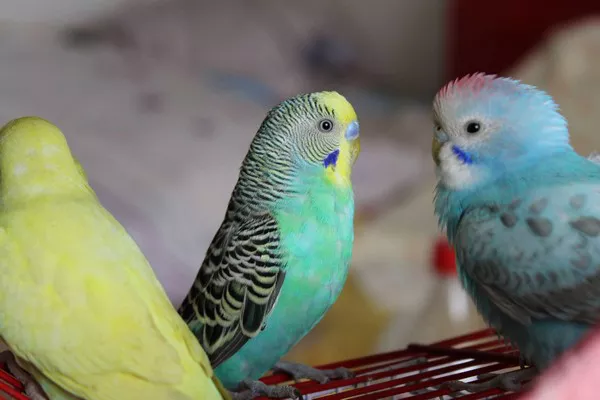Keeping a pet turtle comes with a series of responsibilities, including providing the right environmental conditions to ensure their well-being. One common question among turtle keepers is whether or not to turn off the heat lamp at night. To address this query effectively, we need to consider several factors, including the type of turtle, its natural habitat, and the purpose of the heat lamp. In this article, we will explore the importance of heat lamps for turtles, the necessity of nighttime heating, and how to create a suitable environment for your shelled companion.
Understanding the Importance of Heat Lamps
Heat lamps are a critical component of a turtle’s habitat, especially for species that are ectothermic, meaning they rely on external sources of heat to regulate their body temperature. Turtles are cold-blooded creatures, and their metabolism and overall health depend on maintaining an appropriate body temperature.
Here are some reasons why heat lamps are essential for pet turtles:
Metabolic Activity: Heat lamps provide the necessary warmth for turtles to metabolize food effectively. Turtles are more active and can digest their food better when their body temperature is within the ideal range.
Thermoregulation: Turtles need a range of temperatures to function optimally. Heat lamps create thermal gradients in the enclosure, allowing turtles to move to warmer or cooler areas as needed to regulate their body temperature.
Basking Behavior: Many turtle species exhibit basking behavior, where they climb out of the water onto a basking platform or land to absorb heat from the lamp. This behavior is essential for drying their shells, aiding digestion, and synthesizing vitamin D3 from sunlight or UVB radiation.
Overall Health: Maintaining the correct temperature is crucial for the overall health and longevity of pet turtles. Proper heating helps prevent health issues like respiratory infections and lethargy associated with cold stress.
Daytime vs. Nighttime Heating
The use of heat lamps during the daytime is widely accepted and recommended for pet turtles. However, the question of whether to turn off the heat lamp at night is more complex and depends on the specific needs of your turtle.
Diurnal vs. Nocturnal Turtles: Some turtle species, like red-eared sliders, are diurnal, meaning they are most active during the day and rest at night. For diurnal turtles, it is generally acceptable to turn off the heat lamp at night, as long as the ambient temperature does not drop too low.
Nocturnal Turtles: On the other hand, some turtle species, like musk turtles or map turtles, are more nocturnal and may remain active during the night. Nocturnal turtles may still benefit from a heat source during the night, especially if the room temperature drops significantly.
Ambient Room Temperature: The decision to turn off the heat lamp at night should also consider the ambient room temperature. If the room stays within the acceptable temperature range for your turtle’s species, you may not need nighttime heating.
Hatchlings and Juveniles: Young turtles, including hatchlings and juveniles, are more sensitive to temperature fluctuations and may benefit from continuous heating, even at night.
UVB Lighting: If you are using a combined heat and UVB lamp, turning it off at night may limit your turtle’s exposure to essential UVB radiation. In this case, supplemental heating may be needed if the room temperature drops significantly.
Creating the Ideal Habitat
To ensure the comfort and well-being of your pet turtle, it’s crucial to create an ideal habitat that includes appropriate heating arrangements. Here are some steps to consider:
Research Your Turtle Species: Understand the specific heating and lighting requirements of your turtle’s species. Different species have different temperature and UVB needs.
Use a Thermostat: Invest in a thermostat to regulate the temperature of your turtle’s basking area. This ensures that the heat source maintains a consistent temperature within the safe range.
Provide a Basking Area: Include a basking platform or area in your turtle’s enclosure, where they can access the heat lamp or UVB light as needed. Make sure it is easily accessible and offers a variety of temperature gradients.
Monitor Room Temperature: Keep an eye on the ambient room temperature, especially during the nighttime. If it drops below the recommended range for your turtle’s species, consider using a supplemental heat source, such as a ceramic heat emitter.
Consult a Veterinarian: If you have concerns about your turtle’s health or heating requirements, consult with a veterinarian who specializes in reptile care. They can provide guidance tailored to your specific situation.
Conclusion
The decision of whether to turn off the heat lamp at night for your turtle depends on factors such as the species of turtle you have, their activity patterns,and the ambient room temperature. While some diurnal turtles can tolerate nighttime cooling, others, especially nocturnal or young turtles, may require continuous heating.
Creating an ideal habitat for your pet turtle involves understanding their specific needs and providing a suitable environment that includes proper heating and lighting. Regularly monitoring your turtle’s behavior and health can help you determine if any adjustments are needed to ensure their comfort and well-being. Ultimately, a well-maintained habitat with appropriate heating arrangements will contribute to the health and happiness of your shelled companion.
Related Topics:

























